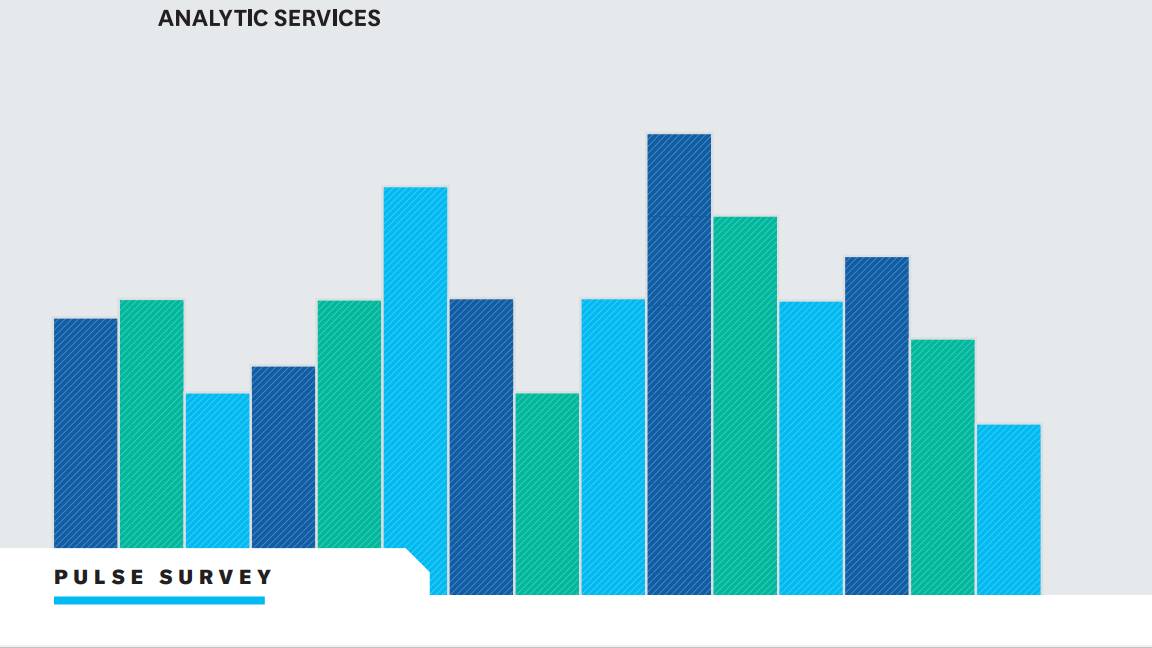The highest-paying tech jobs
A guide to the highest-paying tech jobs in both the US and UK, as well as the demands driving tech salaries


Technology skill sets continue to be greatly sought after, with the highest-paying tech jobs in 2024 closely linked to skills shortages in key areas including cyber security skills, cloud skills, and AI skills.
According to the results of the surveys that informed Hays’ US and UK 2024 Salary Guides, this has led to a 3-5 % average salary increase across these technology sectors over the last year.
Unsurprisingly, roles with the biggest demand from employers have seen greater salary rises. Some of these roles require formal qualifications but role-specific certifications can also help with job prospects – for example, prospective workers could weigh up a cyber security certification versus a degree.
We’ve compiled a list of some of the highest-paying full-time roles from the most in-demand disciplines, with data based on figures from Hays’ 2024 UK Salary Guide and 2024 US Salary Guide.
1. Cyber security architect
Average salary US: $208,000/year
Average salary UK: £115,500/year
Cyber security architects are in charge of producing and maintaining an organization’s IT security systems and ensuring they evaluate vulnerabilities and risks. It’s important for them to keep on top of current trends in the cyber security landscape and keep staff in the loop on new procedures and standards.
Get the ITPro daily newsletter
Sign up today and you will receive a free copy of our Future Focus 2025 report - the leading guidance on AI, cybersecurity and other IT challenges as per 700+ senior executives
The responsibilities of a cyber security architect include running penetration tests, creating cyber security budgets, staying abreast of cyber security compliance obligations, and evaluating new technologies such as the impact of AI on security.
They are expected to maintain good communication with their organization’s chief information security officer (CISO), to allow the executive to perform their demanding role with all the necessary security insights.
2. Solutions architect
Average salary US: $203,500/year
Average salary UK: £93,000/year
Solution architects develop and implement solutions that meet business needs, which involves working with stakeholders to understand business requirements and cultivate the right tools.
Strong analytical and problem-solving skills are essential, and when it comes to technical expertise, employers look for experience with design and software development.
3. Enterprise architect
Average salary US: $171,500/year
Average salary UK: £95,000/year
While solutions architects evaluate business requirements and develop products or services accordingly, enterprise architects identify business needs in relation to external and internal factors including industry competition and the business’ own IT landscape.
Enterprise architects analyze current trends in technology architecture, perform gap analysis, educate IT teams about new frameworks like agile development. With an overarching view of the organization, they’re also often in charge of developing its IT roadmap.
4. Cloud engineer AWS/Azure (UK) / Cloud solutions engineer (US)
Average salary US: $152,000/year
Average salary UK: £67,500/year
Cloud engineers manage the maintenance of cloud-based infrastructure, allowing businesses to run their cloud applications and services. Cloud computing has become increasingly important for organizations of all sizes as digital transformation efforts have matured and the cloud engineer has become an all-important role at many firms.
Programming skills are crucial for this role, as well as a strong grasp of DevOps, Kubernetes and containerization, and database management.
5. Infrastructure specialist/architect
Average salary US: $142,000/year
Average salary UK: £78,000/year
Infrastructure specialists/architects are involved in the development, configuration, integration, and maintenance of their firm’s IT hardware and programs. They are expected to regularly assess IT infrastructure to ensure it meets business needs and look for optimization opportunities such as eliminating legacy infrastructure.
They are well-versed in common operating systems, possessing critical technical problem-solving and analytical skills. Employers also look for strong SQL skills and CCIE or CCNP certifications.
6. Data scientist
Average salary US: $123,000/year
Average salary UK: £65,5000/year
A data scientist's main focus is to help the business assess the questions it needs to ask about data and to collect it in a manner conducive to this, in comparison with data analysts who answer these questions with data-driven insights.
They do this through the use of data mining, the creation of mathematical algorithms, and predictive analytics models for collecting, sorting, and analyzing information. Data scientists also need a firm grasp of programming languages such as Python, R, and SQL.
To become a data scientist, candidates will need at least a computer science degree but typically data scientists will hold a Master's degree or PhD. Data science bootcamps can also be a helpful path to reskilling within the sector.
7. Data analyst
Average salary US: $81,000/year
Average salary UK: £43,000/year
Data analysts are responsible for taking the data that organizations collect and looking for trends that will allow them to provide actionable insights. In today's sector, data analysts will need to be well-acquainted with machine learning (ML) and AI, as well as SQL.
They also need a strong understanding of data management, to raise insights from unstructured data. Strong analytical skills are crucial but, just as importantly, they must be able to effectively communicate their insights to the rest of the business.
The most in-demand tech skills
As mentioned above, the highest-paid tech jobs are primarily those connected to the skills that can help address gaps or an anticipated demand within the sector. For the UK specifically, this includes cyber (a 4% rise), architecture (4.1%) and cloud and data (both 4.3%) per Hays.
“With organizations collecting increasingly large amounts of data and opting for off-site storage solutions, cloud and data professionals have seen a significant uplift in demand,” says Amanda Whicher, director at Hays specializing in technology.
“Cyber experts are equally sought after – especially in the current geopolitical climate – with employers seeking specialists who can review their security frameworks and protect against heightened cyber threats.”
Are tech salaries stagnating?
Salary increases do look to be levelling out however, as the UK average was down from seven percent on the previous year.
But they’re far from stagnant, with Hays UK reporting that over the last twelve months more than three quarters (78%) of UK technology employers increased salaries, with over a third (35%) of these by five percent or more.
In the US, Hays’ survey found that 81% of IT employers plan to increase salaries in 2024, with 39.4% set to raise incomes by 3-5%, and 12% planning to increase salaries by more than 10%.
“US salaries shot up a couple of years ago, but over the last year they have remained somewhat the same – which is high,” says Gene Smith, senior director, Delivery – Cyber, Projects, and Non-Core, Hays US.
“They were increasing at a very fast rate, which resulted in ‘the great resignation’. This caused companies to overpay many tech professionals and ultimately led to mass layoffs in the US tech business. Companies are now in cost-saving mode while levelling things out and seem to be focused on the best value.”
How tech unionization has affected salaries
Worker are undergoing a shift, as unionization within the tech sector is on the rise. Conventional wisdom had been that, as well-paid workers, there was no need for collective bargaining. Increasingly however, employees are realizing compensation alone doesn’t guarantee fair treatment or a voice on the issues that matter.
“Workers want more of a say in things like ethical product development, harassment policies, diversity and inclusion efforts – the list goes on,” says Doug Stevenson, technology consultant and founder of website BlinqBlinq.
In 2023 the sector marked a rise in unionization efforts due to a number of factors including, but not limited to, the changing nature of work (i.e. remote and flexible working), widespread layoffs and employee feelings of being undervalued and overworked.
RELATED WHITEPAPER

Levels of organization differ greatly between the US and UK with the former often facing roadblocks from major firms who remain staunchly anti-union and varying state laws on unionization. But we are seeing changes, as evidenced by Microsoft’s first recognition of a union in early 2023.
Forrester research manager Leonardo Bulgarelli Freitas adds that awareness is also an issue across the board.
“Many tech workers are not aware that unionization is even a possibility. But there are focused groups trying to organize themselves, and if awareness grows, we could see more consolidation over the next few years.”
Keri Allan is a freelancer with 20 years of experience writing about technology and has written for publications including the Guardian, the Sunday Times, CIO, E&T and Arabian Computer News. She specialises in areas including the cloud, IoT, AI, machine learning and digital transformation.
-
 Bigger salaries, more burnout: Is the CISO role in crisis?
Bigger salaries, more burnout: Is the CISO role in crisis?In-depth CISOs are more stressed than ever before – but why is this and what can be done?
By Kate O'Flaherty Published
-
 Cheap cyber crime kits can be bought on the dark web for less than $25
Cheap cyber crime kits can be bought on the dark web for less than $25News Research from NordVPN shows phishing kits are now widely available on the dark web and via messaging apps like Telegram, and are often selling for less than $25.
By Emma Woollacott Published
-
 IDC InfoBrief: Sustainability doesn’t need to be all stick and no carrot
IDC InfoBrief: Sustainability doesn’t need to be all stick and no carrotwhitepaper CIOs are facing two conflicting strategic imperatives
By ITPro Published
-
 2024 State of procurement report
2024 State of procurement reportWhitepaper The trends shaping the future of business buying
By ITPro Last updated
-
 Digital optimisation paves the way to strategic supplier management
Digital optimisation paves the way to strategic supplier managementWhitepaper Procurement’s role as a strategic driver
By ITPro Published
-
 The small and medium business guide to buying
The small and medium business guide to buyingWhitepaper Optimising purchasing to save in 2024
By ITPro Published
-
 Move your organisation forward by refining your strategic procurement plans
Move your organisation forward by refining your strategic procurement plansWhitepaper An Executive’s Guide to Purchasing in 2024
By ITPro Published
-
 Accelerate full-stack web and mobile app development
Accelerate full-stack web and mobile app developmentWhitepaper Three tips proven to help teams build modern apps faster
By ITPro Published
-
 Check Point acquires Perimeter 81 in push to meet SASE demand
Check Point acquires Perimeter 81 in push to meet SASE demandNews The half-billion dollar deal greatly expands Check Point’s service edge offering
By Rory Bathgate Published
-
 What is the Network and Information Security 2 (NIS2) Directive?
What is the Network and Information Security 2 (NIS2) Directive?In-depth Everything your business needs to understand about the implications of the new EU regulations and how it differs from the UK's own updated NIS rules
By Rene Millman Last updated